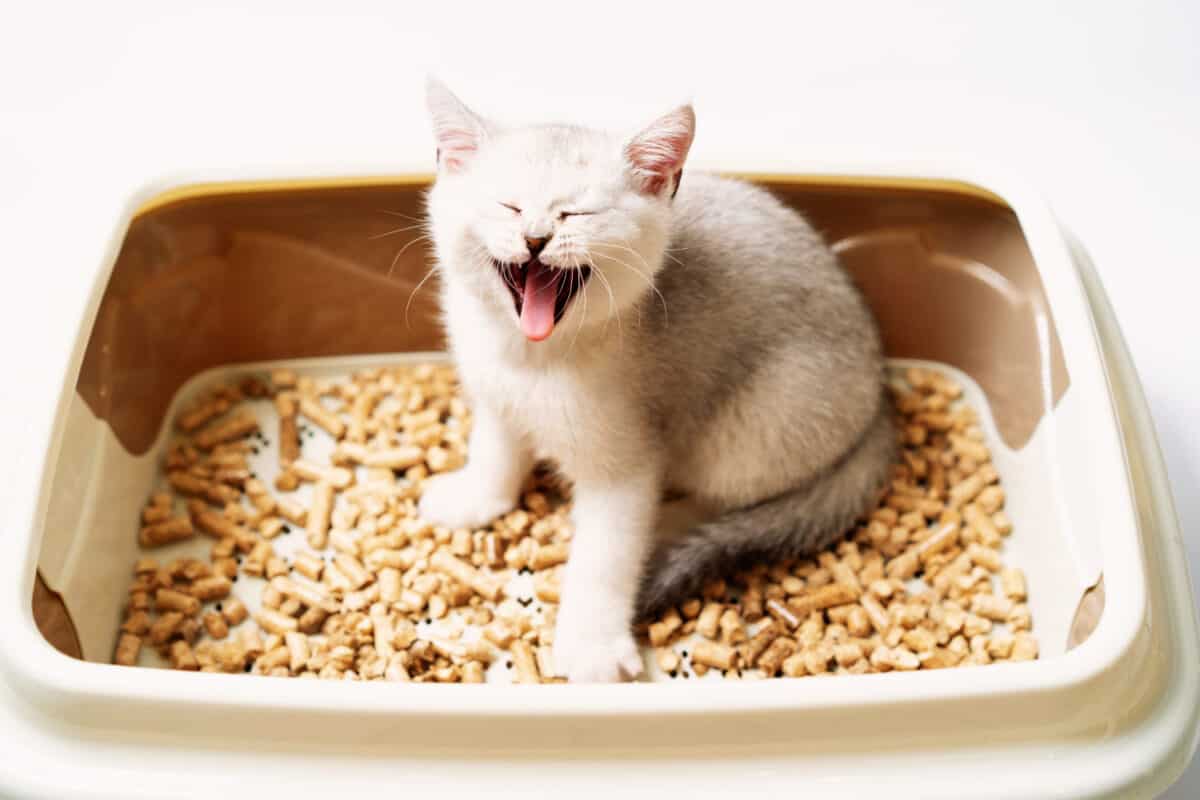What do you do when your perfect pet turns your home into their toilet? Welcome to the often puzzling world of litterbox problems in cats. This article dives deep into the nitty-gritty of these behaviors.
Why do cats go outside the box? How can you prevent it? What steps can you take to address the situation? Don't fret; we've got you covered with step-by-step guidance.
Let's pull back the curtain on these messy issues, exploring everything from understanding territorial spraying to the role of your cat's health. We'll guide you through making the necessary changes and help you turn your home back into a no-mess zone.

Understanding The Problem: Why Cats Miss The Box
The charm of our furry companions lies in their tidy nature - they instinctively cover their waste. So, when your cat decides to transform your precious carpet into a makeshift litterbox, it can drive you up the wall. The million-dollar question is - why does this happen?
Well, there's no one-size-fits-all answer. Cats are complex creatures, each with its own quirks and preferences. Your four-legged friend's detour from the litterbox could be a simple fix, but at other times it might feel like you're navigating a tricky maze.
To crack the code, think of yourself as a cat detective, piecing together the clues. What you're aiming for is to rule out potential causes until you hit the bullseye, understanding exactly what ticks off your cat. With the root cause in your grasp, you can then lay out a strategy to bring back harmony to your home.
Whatever the cause: Never ever punish your cat for eliminating outside the box.
Cats and discipline generally don't mix, but in this case, you'll be adding more stress to an already trying situation, making the problem worse.
Don't shout at the cat, don't squirt water at your cat, and don't reprimand her or him. Don't ever hit or punish your cat in any way.
SIGN UP FOR THECATSITE'S EMAIL UPDATES >
Step 1: Is It Territorial Spraying Or Litter Box Avoidance?
Just because you found traces of urine does not mean your cat simply urinated outside the box. The difference between regular urination and spraying is in the position and choice of location—when urinating, a cat uses a squatting position on horizontal surfaces.
When spraying, a cat lifts its tail and sprays urine on a vertical surface such as a wall or a piece of furniture. If you find urine on vertical surfaces, roughly 8-10 inches above ground level, your cat may have sprayed urine to mark its turf in light of a perceived territorial threat, or possibly as a sign of stress.
Intact (non-neutered) males are likely to begin spraying as they reach puberty, usually between the ages of 4 and 8 months. If you have an intact male cat and he's started spraying, it's time to call the vet and have him neutered. Actually, it's a bit past the time, but better late than never!
The longer you wait, the more likely the cat to develop a behavioral pattern of spraying which could be difficult to stop. Read more about territorial spraying and how to deal with it.
Whether your cat sprays or eliminates outside the box, continue to step 2.
Step 2: Call Your Vet
There are two ways in which your cat's health can trigger litter box problems.
Your cat could have a medical problem that's directly related to urinating or defecating. Once pain sets in, the cat tries to avoid the place where the pain happened, i.e. the litter box. You cannot deal with the behavioral aspect of the problem without first solving the medical problem.
Another possibility is that your cat has a medical problem that creates pain-induced stress. Stress in itself can cause a cat to eliminate outside the box. Stress can be caused by many things, but your first priority is to rule out a medical cause.
A trained vet knows the types of conditions that cause litter box avoidance and how to treat them. Remember, you cannot move on to the behavioral solutions suggested below before you have the all-clear from your vet.
Got the all-clear from your vet? Wonderful news! Move on to Steps 3 and 4. Step 3 deals with assessing your litter box setup and step 4 with potential stressors in your cat's environment. Litter box avoidance can be due to either or both of these aspects, so you need to cover your bases on both.
Step 3: Litter Box Setup
If your healthy cat avoids the litter box, you need to become an expert on litter box setup. While there are personal preferences at play, there are some rules which need to be followed. It's not uncommon for cats to accommodate a less-than-ideal setup for years, only to become more choosy later in life.
How to become an expert? Read the following articles:
Now try to assess the litter box situation in your home. Are there enough boxes? Where are they located? Are they where they should be? What type of litter are you using? Are you using the right type for your cat? Are the boxes cleaned often enough?
Avoid abrupt changes but do address these issues. A solution may be as simple as adding a litter box, cleaning more often, or distancing cat food from the litter box. You may have to experiment to find the perfect setup for your own household. Need help? Share your specifics by creating a thread in the cat behavior forum.
Step 4: Address Potential Stressors
Stress overload alone can cause a cat to avoid the litter box. Assess your cat's stress levels using these guides:
Try the following techniques to de-stress your cat:
Six Surefire Strategies to Reduce Stress in Cats

Step 5: Clean Up
When cats smell their own urine or feces, they are attracted to using the same place again as their toilet. So, whatever caused litter box avoidance to begin with - a medical problem, setup woes, stress overload, or a combination of any of these - you need to clean up the mess.
We're not talking about cleaning it up enough to suit your own standards. It needs to be cat-standard-clean, which means zero smell residue.
How can you clean it well enough? Read this guide: "How To Remove Cat Urine" and apply it to both urine and feces stains.
If the cat keeps using the same spot even after it's been properly cleaned, you may want to block the cat's access to the area or use other measures to disassociate the place from elimination. Playing with the cat in that area or placing small dishes with some cat food can sometimes help.
What If None Of This Helps?
Litter box avoidance problems can be easy to solve... or very difficult. If you have followed all of the steps detailed here, in the right order, and your cat still avoids the litter box, join us at the cat behavior forum and let us know what you did to try and solve the problem.
Add pictures if possible, of the litter boxes and the places the cat uses. One of our members just might notice something you haven't and come up with a solution.
Some cases need professional help. That's when you should be calling a qualified cat behavior consultant. The cat behaviorist will visit your home, see the situation and work with you on finding a solution.
SIGN UP FOR THECATSITE'S EMAIL UPDATES >
Comments? Leave them using the form below. Questions? Please use the cat forums for those!
Note: We may get commissions for purchases made through links on this page.




5 comments on “How To Solve Litterbox Problems In Cats [The Ultimate Guide]”